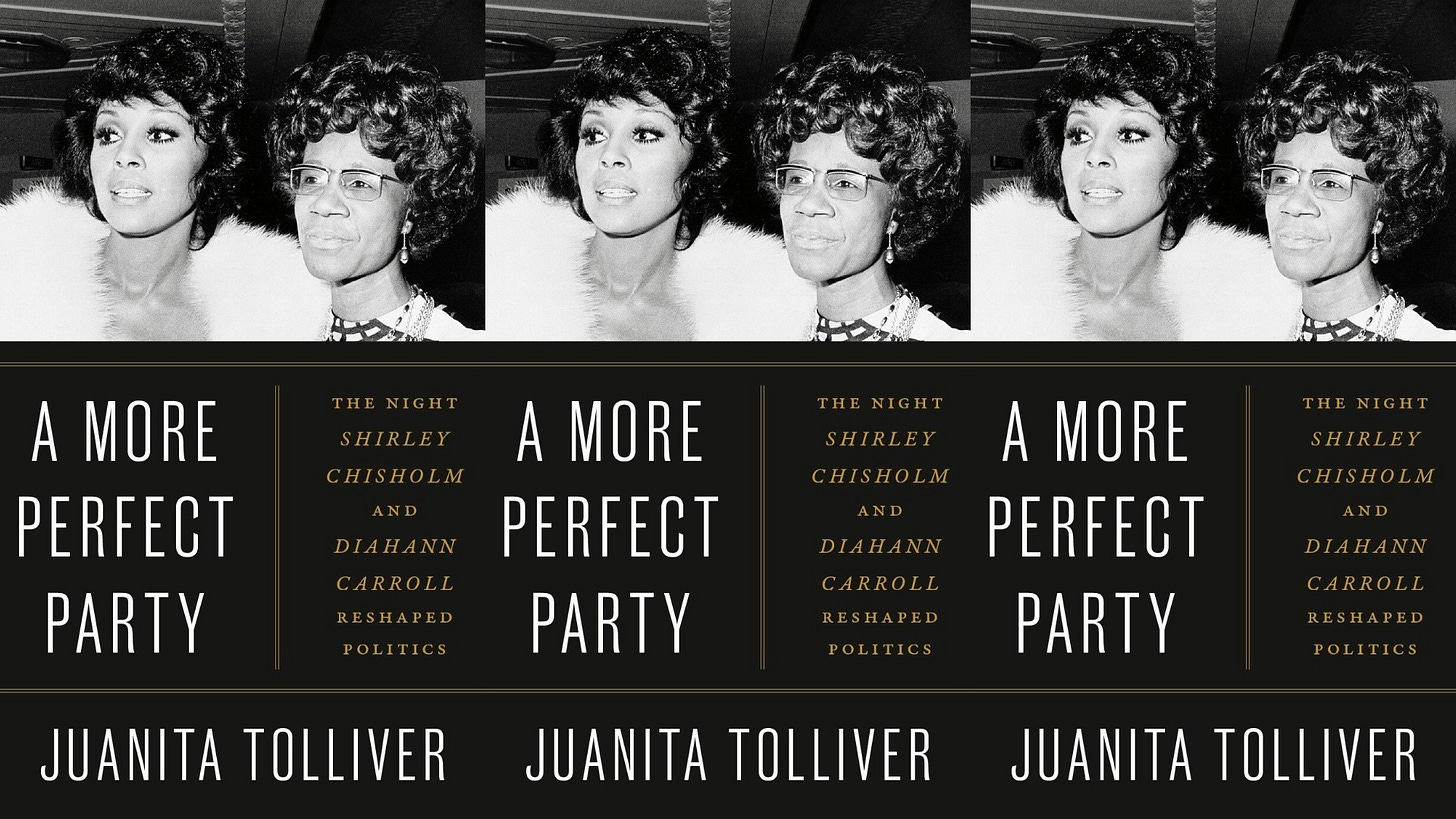Excerpt: The Night Huey P. Newton Met Shirley Chisholm
Political analyst and author Juanita Tolliver takes us back to when the Black Panther Party and Chisholm's bold and unexpected alliance shook the establishment during her historic presidential run.
Excerpted from the book A MORE PERFECT PARTY: The Night Shirley Chisholm and Diahann Carroll Reshaped Politics by Juanita Tolliver. Copyright © 2025 by Juanita Tolliver. Reprinted with permission of Legacy Lit, an imprint of Grand Central Publishing. All rights reserved.
Huey P. Newton, co-founder of the Black Panther Party for Self-Defense, missed his f…





